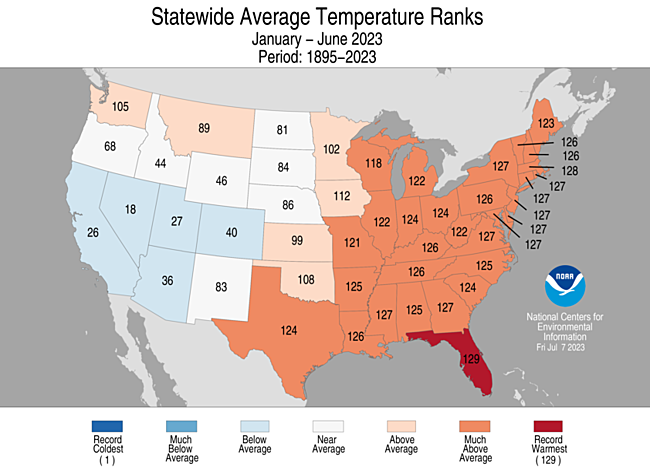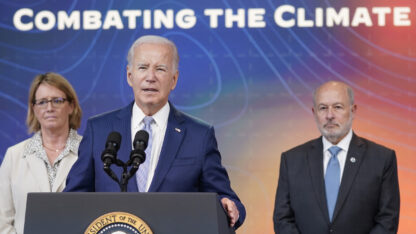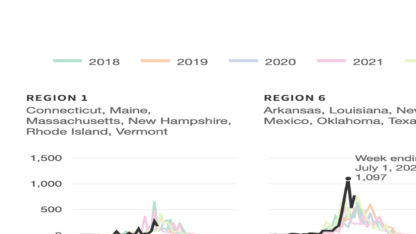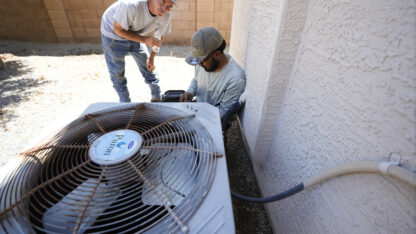As high temperatures continue, workers in Atlanta demand relief

Workers at a handful of companies in Atlanta are demanding their employers provide more relief from the heat as high temperatures continue this week.
At a rally outside of a Burger King in Decatur on Friday, members of the Union of Southern Service Workers said they need safer working conditions, starting with the most basic measure: fixing the store’s long-broken air conditioning.
“I have to go into the freezer in order to get cool,” said Arnice Sykes, who’s worked at this Burger King for two years.
She said the company has only provided box fans for employees as kitchen temperatures reached the mid-90’s.
Diana Rivera, a member of the Union of Southern Service Workers, said some Latino workers are afraid to speak out against their employers.
“I understand the situation that a lot of Hispanic immigrants are going through in this country, but things are never going to change if we keep it quiet,” she said in Spanish. “Please, let go of your fear.”
Burger King employees from this location are filing a complaint with the Occupational Safety and Health Administration (OSHA). Burger King declined to comment.
Their complaint comes as President Joe Biden says he wants to do more to help workers cope with the heat.
On Thursday, Biden announced new actions addressing extreme heat. According to the White House, the U.S. Department of Labor will distribute information on how employers can help protect workers from heat. The agency will also increase enforcement and inspections in industries where workers are at high risk from the heat, including agriculture and construction.
OSHA does not currently have a national standard for heat. Earlier this week, a group of lawmakers, including Representatives Nikema Williams and Hank Johnson from Georgia, sent a letter to labor officials urging them to implement one.
“This year has already brought record high temperatures that have led to preventable deaths in the workplace,” they wrote. “We know extreme weather events such as heat waves are becoming more frequent and more dangerous due to climate change. Urgent action is needed to prevent more deaths.”
According to the National Weather Service, heat is the number-one weather-related killer in the country. Children, older people, pregnant people, outdoor workers, athletes, people with certain medical conditions, people who are incarcerated and people who are homeless are most at risk of heat-related deaths.
There’s not much relief in sight from the hot summer temperatures in Atlanta. The National Weather Service predicts daily highs in the 90s into next week. The heat index on Saturday will be as high as 100.
“These temperatures are not out of the ordinary,” said Vaughn Smith, a meteorologist with the National Weather Service in Peachtree City. “We’ve just been having them for so long, that’s the out-of-the-ordinary part,” he said.
The first half of this year has been the third-warmest on record for Georgia. According to an analysis by the nonprofit research group Climate Central, the average summer temperature in Atlanta has increased by three degrees since 1970.
Nighttime temperatures are rising faster, which can increase the danger to those most vulnerable to the heat. Cooler nights are typically when people’s bodies have a chance to recover from very hot days.
The unpleasantness of the heat this year is compounded by poor air quality. Smoke from distant wildfires has triggered air quality alerts on some days.
“Not only are we dealing with heat, but we’re also dealing with the Canadian wildfires,” said James Martinez, a spokesman with the American Lung Association. “That’s an added reason why people should be mindful of what they’re doing on a day-to-day basis, especially if they have underlying lung conditions.”
The American Lung Association recommends people with asthma and other lung conditions limit prolonged outdoor activities during the late afternoon when temperatures are the highest, and for people to keep their quick-relief medications with them.
Experts also recommend staying hydrated and checking on vulnerable neighbors, friends and family.
Molly Samuel contributed to this story.








